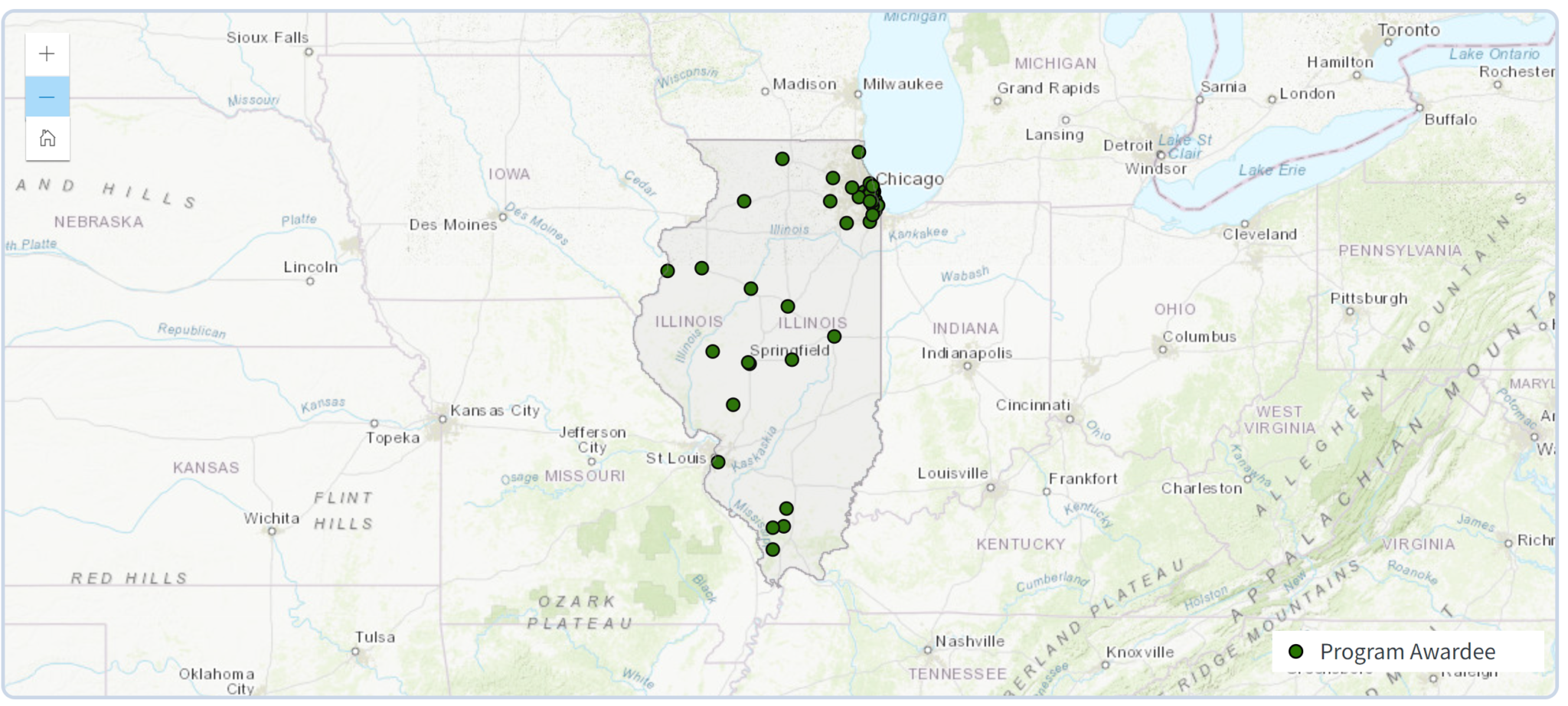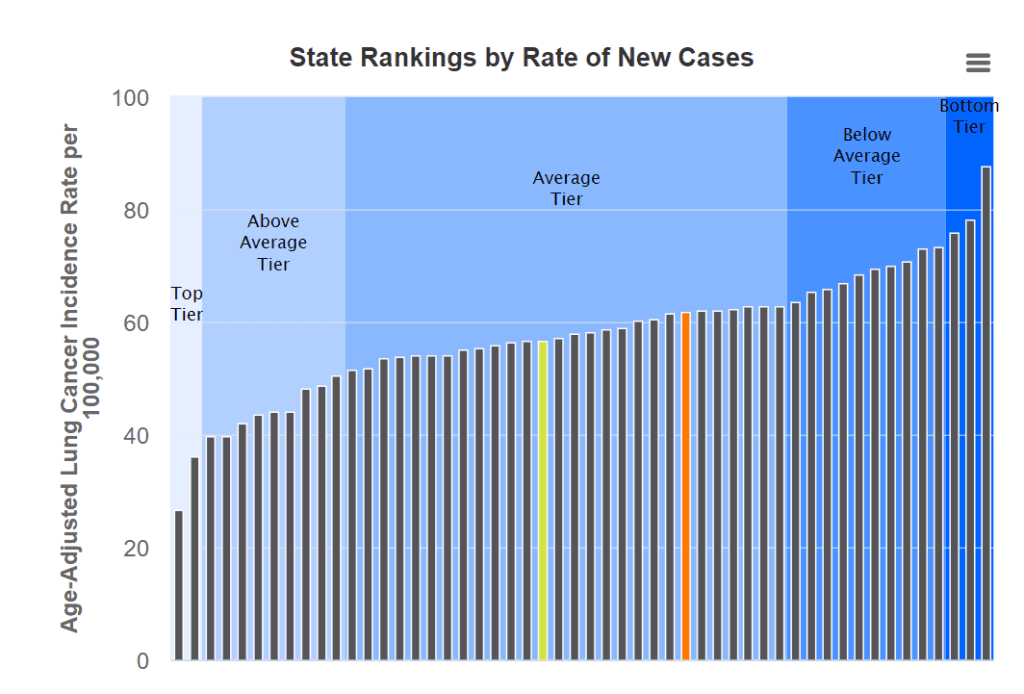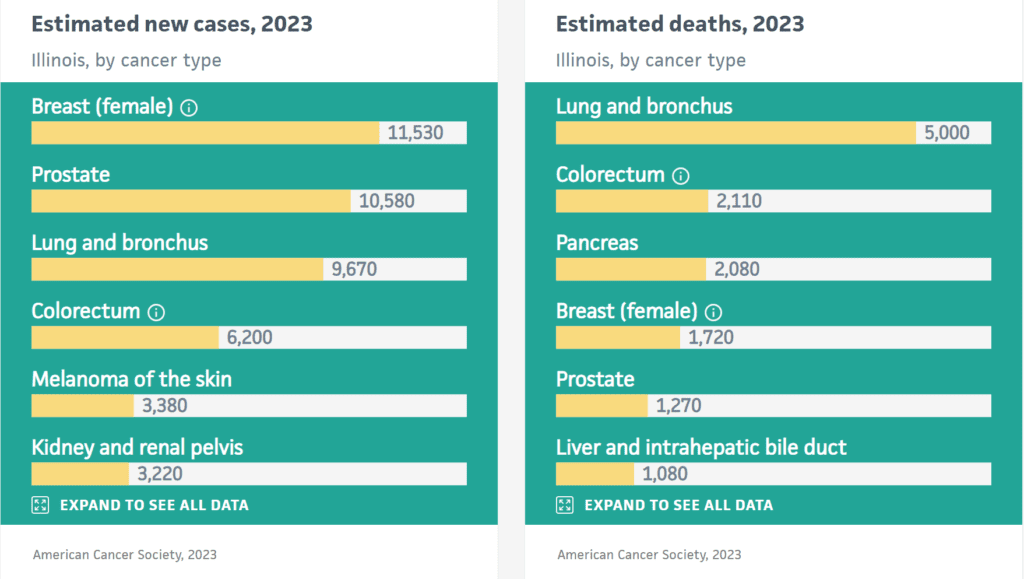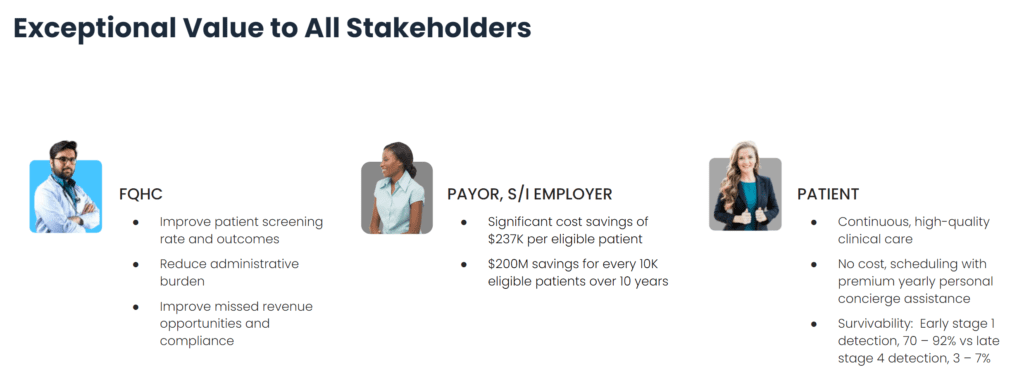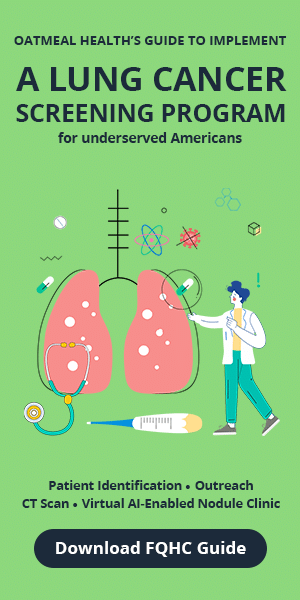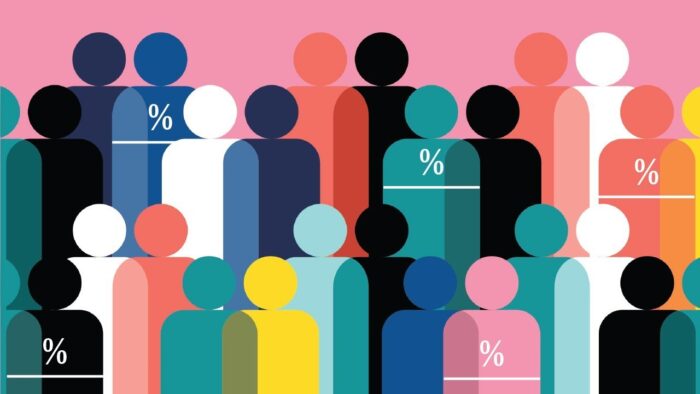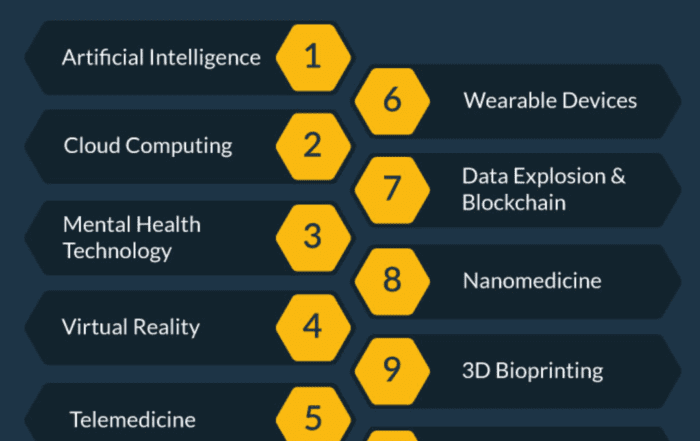Share this article and save a life!
Oatmeal Health and Illinois Primary Healthcare Association Combine Efforts to Improve Health Equity and Cancer Screenings for the Underserved in Illinois
Oatmeal Health, a startup utilizing AI technology recently announced a collaboration with Illinois Primary Health Care Association to help improve patient outcomes in the state’s 53 FQHCs by providing high-quality cancer screenings to underserved patients who are at high risk, starting with lung cancer.
Illinois Lung Cancer Rates:
New Cases:
- 7.0% of Illinois residents who are eligible have been screened for lung cancer.
- The rate of new lung cancer cases is 63 and significantly higher than the national rate of 57.
- Illinois ranks 32nd among all states, placing it in the average tier.
2023 Estimates
Justin Porter M.D. Assistant Professor of Medicine at the University of Chicago Illinois
“There is this sort of disconnect between the care we’ve been trained to give and the constraints of a clinic workday,” said Justin Porter, MD, Assistant Professor of Medicine at the University of Chicago, “We have an ever-increasing set of guidelines, but clinic slots have not increased proportionately.”
How does Oatmeal plan to help patients in Illinois?
We plan to close the care gap by efficiently identifying and screening underserved patients in Illinois for cancer, starting with lung, year after year.
- Patient Identification with Machine Learning Data Prediction: Oatmeal will help identify eligible patients that they believe are at high-risk for cancer and facilitate the shared decision-making visit to place the order for the CT scan.
- Patient CT Scan Logistics: Once determined the patient is at high-risk, Oatmeal Health’s team can assist patients with scheduling their appointments and transportation if needed.
- AI-Enabled Virtual Cancer Nodule Clinic: After the patient has completed the CT scan, Oatmeal’s virtual nodule clinic with computer vision technology ensures determines a malignancy risk score of a nodule.
- Patient Engagement / Outreach: Patients are directed to appropriate follow-up, which for most is a scan every year using advanced nudging technologies and culturally appropriate educational materials geared towards a patient’s gender, identity, ethnicity, culture, and language.
Oatmeal Health differs from typical digital health companies by offering a technology-powered clinical concierge service that streamlines the process of screening patients for cancer for primary care providers who may face constraints such as limited time, resources, or expertise. This enables primary care facilities to focus on their patients’ immediate needs while Oatmeal Health handles the entire patient journey, including staffing and technology, without adding extra work for the FQHC or the patient.
Current technologies often focus on only one aspect of the complex problem of chronic illness detection and management, resulting in a lack of a holistic approach.
Oatmeal’s solution addresses all five crucial steps in the process: identifying hard-to-find patients with disease prediction machine learning software, determining eligibility and patient outreach, facilitating scans at imaging centers including transport, utilizing AI to determine malignancy risk of the nodule as a supplement to the radiology report, and providing ongoing education and support to ensure patients return for regular follow-up scans. In the future, they plan to expand services to breast cancer, colorectal, and other chronic disease screening services.
Why is Lung Screening a Problem for FQHCs?
- NO SCREENING STANDARDIZATION
- As cancer screening guidelines are changed or added, there is no standard system for implementation.
- CLINICS ARE OVERWORKED AND UNDERSTAFFED
- Primary care spends only 13 to 16 minutes with patients and do not have time to properly provide preventative services to their patients.
- LOW SCREENING COMPLIANCE
- As of 2021, there were approximately 14.5 million Americans per year who qualify for lung cancer screening. Regrettably, fewer than 5% receive the screening.
- REDUCED REIMBURSEMENT
- Inefficient management of reporting guidelines for cancer (RADS) at health centers negatively impacts their reimbursement.
2022 Lung Cancer Screening Policy Changes
When compared with breast, colorectal, and cervical cancer, where ~70% of eligible people are screened, only ~4% of patients are screened for lung cancer.
- CMS Expanded Eligibility: Effective February 10, 2022, CMS expanded beneficiary eligibility for screening for lung cancer with LDCT to closely align with the USPSTF recommendations. CMS lowered the minimum age for screening from 55 to 50 years and reduced smoking history from 30 pack-years to 20 pack-years. This increased eligibility to 14.5M Americans from 6.5M to receive these scans at no cost to them.
- Pending Lung Screening HEDIS Metric: Through an award by the American Cancer Society and the American Lung Association, NCQA has begun the development of a HEDIS® quality measure for lung cancer screening which should be live in the next few years.
- New AI CPT Code: In July 2022, CMS introduced a new CPT code for interpreting the malignancy of a lung cancer nodule using AI. Interested to learn more? Contact Oatmeal Health.
Statistics about Lung Cancer
Seniors are sick, have limited financial resources, and dramatically underutilize their healthcare, making them a $750B burden on Medicare.
80% HAVE CHRONIC CONDITIONS
Chronic disease is the cause of 70% of all deaths in America. Given that lung cancer alone claims more lives than the combined total of deaths from breast, prostate, and pancreatic cancers, Oatmeal Health has made it a priority to initially focus on screening for lung cancer.
- 1 in 17 Americans will be diagnosed with lung cancer in their lifetime
- 16M Americans live with a smoking-related illness
- 84% of lung cancer cases are diagnosed at a late stage
- > 50% of people diagnosed at a late stage with lung cancer die within one year
HEALTH CENTERS ARE NOT EQUIPPED TO SCREEN PATIENTS FOR LUNG CANCER
FQHCs are facing significant challenges due to being overworked and understaffed, which leaves little time for managing preventative lung cancer screenings. On average, clinics have only 13 minutes per patient visit, making it difficult to provide thorough preventative care.
THE RESULT IS THE UTILIZATION OF EPISODIC CARE AS PRIMARY CARE
As a result, these seniors wait until their condition is exasperated and use the Emergency Room for care. The average doctor visit costs Medicare $50, while a hospitalization costs $45K, and lung cancer costs $282K (lifetime).
Oatmeal Health’s History
Co-Founders of Oatmeal Health, Jonathan Govette, Yuri Ahuja, and Ashish Basuray, are on a mission to prevent millions of deaths from chronic disease by addressing the $3.7T market in the FQHC and health plan market. The sad fact is each year, more people die of lung cancer than of breast, colon, and prostate cancers combined, and that is why Oatmeal plans to focus on lung cancer before expanding into other cancer screening services in the future.
Having watched firsthand as the founder’s families and friends died of cancer, Oatmeal Health was launched as a resource to deliver white-glove, concierge care to underserved Americans. With backgrounds in radiology, machine learning, computer vision, and data privacy, Vachon, a Navy veteran, and Govette, prior CEO of a digital health e-consult/referral platform, decided it was time to make a dramatic difference in how patients are screened for cancer.
Jonathan Govette Co-Founder and CEO of Oatmeal Health
“Improving outcomes for underserved communities drives the importance of partnership and collaboration among health systems,” said Jonathan Govette., Co-Founder, and CEO of Oatmeal Health. “We are thrilled to collaborate with Ollie Idowu at IPHCA, who shares our goal of enhancing patient access and engagement while working towards closing the health equity gap for 1.4 million patients across the state of Illinois.”
###
About Illinois Primary Health Care Association:
The Illinois Primary Health Care Association is a nonprofit trade association that serves as the voice of and champion for all 53 Illinois community health centers which serve over 1.5 million patients annually across more than 400 service sites in underserved areas across our state’s rural, urban, and suburban communities. Please visit www.iphca.org
About Oatmeal Health:
At Oatmeal, we partner with FQHCs to provide case management services that help make lung cancer screening more accessible to patients who face barriers due to social determinants of health. We plan to implement an AI-enabled, value-based lung cancer screening platform and fundamentally change the lives of underserved patients through early identification, engagement, and comprehensive high-touch virtual care. Oatmeal Health is clinician-led, please visit www.oatmealhealth.com.
Share this article and save a life!
Author:
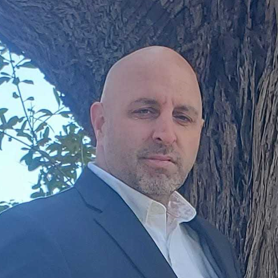
Jonathan is a seasoned executive with a proven track record in founding and scaling digital health and technology companies. He co-founded Oatmeal Health, a tech-enabled Cancer Screening as a Service for Underrepresented patients of FQHCs and health plans, starting with lung cancer. With a strong background in engineering, partnerships, and product development, Jonathan is recognized as a leader in the industry.
Govette has dedicated his professional life to enhancing the well-being of marginalized populations. To achieve this, he has established frameworks for initiatives aimed at promoting health equity among underprivileged communities.

